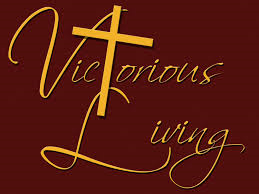A Proper Introduction
Our discussion on “surrender” has raised new interest in a topic WordBytes has “directly” addressed only ten times since our first publication in 2010. Although each bible teaching makes mention of the works of this person, I have failed to dedicate a study about Them.
Who is it? The Holy Spirit! My failure was not my belief that teaching about the Holy Spirit wasn’t important. On the contrary, I wrongly supposed that everyone knew everything about the Holy Spirit. Faulty assumption!
Therefore, for the next few weeks, I’m going to dedicate time to reintroduce us to the Holy Spirit. It is my prayer that at the end of this series, we will desire to draw closer to God after learning about His Spirit (Psa. 42:1-2). Why is this important? As we will learn, the Holy Spirit is vital for victorious living and kingdom building. That’s why we need a “proper introduction”.
The Holy Spirit of Pentecost
This month we celebrated Pentecost in churches across the nation and around the world. With Christ’s completed work of salvation—His crucifixion, resurrection, and ascension—the promised Holy Spirit would come and dwell within us (Acts 2).
It was the Holy Spirit’s indwelling presence that would enable Jesus’ disciples to continue the work He had begun. Pentecost marked the availability of the Holy Spirit to everyone who would “call upon the name of Jesus” (Rom. 10:13).
While we may know about the various ministries of the Holy Spirit, it is even more important to fully grasp the enormity of His Presence within us. Deity is living within us! I love the way Jesus described this phenomenon: “I (Jesus) in them (Believers) and You (God) in me, (so) that they may be made perfect in one” (John 17:23).
Like the disciples on the day of Pentecost we need the Holy Spirit’s power and direction as we live for God’s glory. We are invited to join with the Triune God in Their ministry of deliverance, wholeness, and grace (Eph. 2:10).
God wants to lead you to places you cannot get to without Him, and He does that by the power of His Spirit. He can bring you into the realm of the miraculous—not as a show, but as a demonstration of His love and compassion for the lost, hurting, or needy. Who among us doesn’t want or need that?[1]
Another like the Other
In anticipation of His departure, Jesus promised the disciples “another Comforter” (allon parakletos)—another of the same kind to aid (John 14:16). The Holy Spirit would represent God to the disciples as Jesus did in his incarnate state.
The Holy Spirit would direct the disciple’s decisions, counsel them continually, and remain with them forever. Jesus knew the heart of His disciples and the importance of His presence in their life. That same Comforter now dwells within each of us who are in Christ (Eph. 1:13).
Jesus knew that, even in the 21st century, we would need the loving reassurance of His presence. With the uncertainty of the world we live in, it is comforting to know that we are never outside the watchful eye of God IN ADDITION to being indwelt by the very presence of Jesus, who is the Holy Spirit living within us.
“The world is perishing for lack of the knowledge of God and
the Church is famishing (starving) for want of His Presence.”
A.W. Tozer, The Pursuit of God
God never changes and His promises are still true—”He will never leave or forsake us” (Gen. 28:15). We are never out of God’s watchful eye or reach.
[1] Stormie Omartian, Lead Me, Holy Spirit: Longing to Hear the Voice of God.






